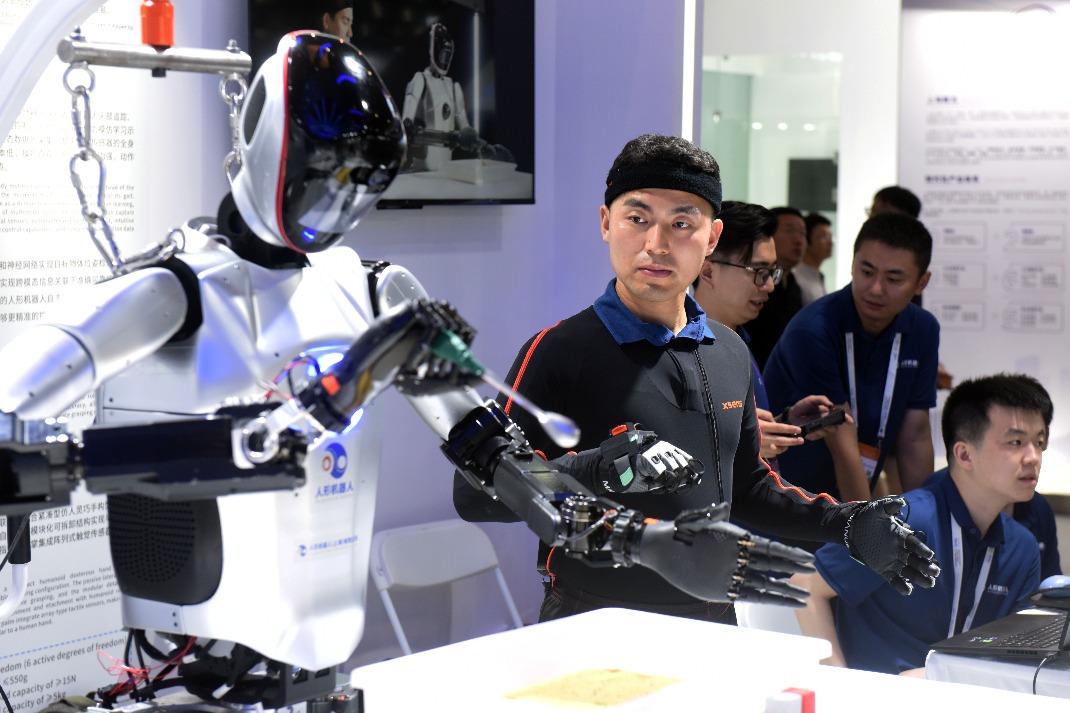More capital in digital field key to transformation


More companies in China will increase investments in digital technologies and drive continuous transformation through advanced technologies led by artificial intelligence, as generative AI can unlock an additional $2.86 trillion in economic value in China by 2038, according to a new report released by global consultancy Accenture.
The report found that nearly 60 percent of surveyed Chinese companies intend to invest more in digital transformation projects, up from 53 percent last year. Manufacturing, finance and supply chain were identified as the top three areas with the highest potential for AI-led reinvention.
The study said only 15 percent of polled Chinese firms have dedicated AI teams, and 32 percent said they are trying to redesign job roles to better adopt technologies such as generative AI — which is below the global average of 46 percent.
It noted that only 4 percent of Chinese companies are adopting an enterprise-wide approach focused on constantly evolving over the long term to drive sustainable growth. While this represents a significant increase from 2 percent last year, it is still lower than the global average of 9 percent.
The study also found that nearly 40 percent of Chinese executives report unprecedented changes in their operating environments, which is far higher than the global average of 12 percent. Compared with their global peers, Chinese executives feel less prepared to navigate this challenging and changing business environment.
This is the seventh consecutive year that Accenture has traced the digital transformation journeys of Chinese companies. The study surveyed 450 companies in eight key sectors, namely high-tech manufacturing, automotive and engineering machinery, pharmaceuticals and healthcare, consumer goods, traditional retail, chemicals and building materials, natural resources and utilities.
Accenture also showed that generative AI can unlock an additional $2.86 trillion in economic value in China by 2038, provided Chinese companies take a holistic and people-centric approach to deploying the technology.
"As the pace of technological change accelerates, its impact on business and society continues to increase. Harnessing the power of technologies at higher level is key to the continuous transformation," said Samantha Zhu, chairwoman of Accenture Greater China.
Zhu said Chinese companies, with their focus redirected toward innovation and growth, are increasingly turning to digital investment in key businesses and functions, and only a few have flexible and robust technological and organizational strategies in place.
Yu Yi, technology lead at Accenture Greater China, said as companies strive to stay ahead and adapt to fast-changing markets, they are increasingly turning to AI to fuel their innovation efforts, adding the proportion of Chinese companies that boost investment and application of AI is rising dramatically.
Yu said it is noteworthy that Chinese enterprises have accelerated digital transformation in the process of their globalization push, while the application of generative AI tech in Chinese enterprises' efforts to expand their presence in overseas markets is also more obvious.
The report suggested enterprises should adopt a holistic approach that aligns AI initiatives with business objectives and build a robust digital core essential for leveraging AI effectively and driving business transformation, as well as place people at the center of their transformation strategies.
Moreover, enterprises should establish clear principles for responsible AI use — including fairness, transparency, accountability and data privacy — with robust controls to mitigate risks, such as potential biases, security vulnerabilities and compliance issues, it added.
Xiang Ligang, director-general of the Information Consumption Alliance, a telecom industry association, underscored the significance of developing digital technologies represented by AI and digital twins, which will inject fresh impetus into the country's economic growth and speed up digital and intelligent upgrades in enterprises.
Noting that some Chinese enterprises are facing mounting difficulties in the process of digital transformation, such as budgetary shortfalls and inadequate skill training, Xiang said these companies should devise long-term plans for digital transformation and continuously pour money into this field.




































